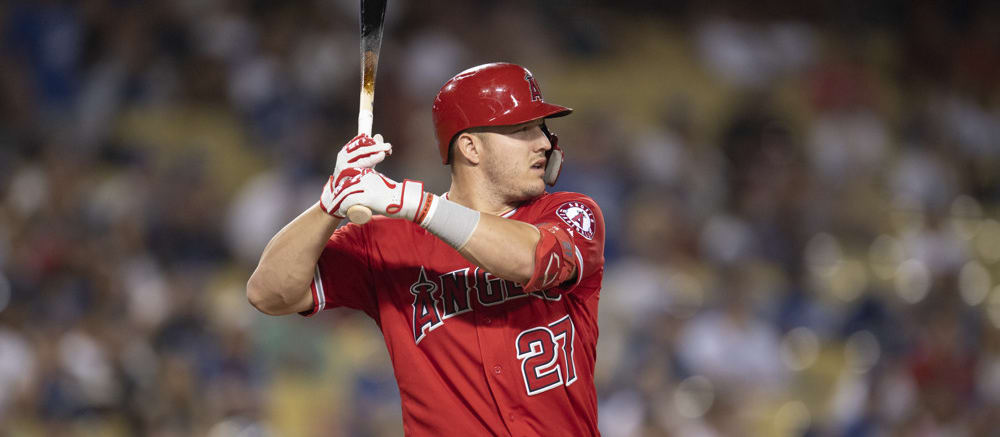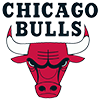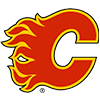Rival Fantasy is an exciting new DFS platform that is gaining popularity quickly. It offers a wide range of sports in various contests led by the NFL, NBA and MLB. Given the current sports schedule and that the baseball season recently kicked off, the focus of this article will be an overview of some of the MLB offerings on Rival Fantasy and a broad overview of the strategies to employ while playing in those various contests.
Fantasy Bingo
We'll begin with Rival's most unique offering, Fantasy Bingo. There's a $1 buy-in, which gets the consumer a randomized 5X5 board of baseball events. This is similar to a traditional bingo board, with the difference being that numbers or letters are replaced by baseball events and a positional requirement. A few examples could be a home run hit by an outfielder, or an extra-base hit by a catcher. The ways to win include five spaces filled in a straight line vertically, horizontally, or diagonally. It's also possible for players to win when the events in all four corners of the board occur.
The biggest difference when comparing the Rival Fantasy version of bingo to the traditional version is that there's an additional element of skill added on Rival Fantasy. In traditional bingo, the player has no control over the numbers being called. On Rival Fantasy, users pick their roster of players. There is no budget, so as long as the roster allocation is satisfied, the roster is allowed. While that is more straightforward than being limited by a salary cap format or the random pick order in a snake draft, there are still important strategic elements to the game. The first step is for users to note the events on the individual card assigned. From there, try to discern a pattern or frequency as to the specific events and their frequency by position. For example, if a card is filled with events for outfielders centered around home runs and extra-base hits, picking the best power hitters such as Mike Trout, Yordan Alvarez and Eloy Jimenez would be a strategy to deploy. If there's a mix of events at a specific position -- this is the most likely scenario -- selecting players with the most well-rounded skillset is the best way to fill in spots on the board. Other key factors could be the player's position in their team's lineup, the overall quality of the lineup and the opposing pitcher.
A similar approach can be taken when looking at pitching. Achievements centered around strikeouts would make pitchers with a high strikeout rate the obvious target, though pitchers who can also pitch deep into a game will also be important. For achievements that require a win or save, picking quality pitchers on good teams is likely to provide the highest chances of success.
Looking at odds for player props is one way to gauge the potential success of your lineup. The last thing to keep in mind for player selection is understanding that there will be many users in a single bingo game. Picking less obvious players will increase a user's chance of having a unique roster and a higher chance at a payout. For example, Vladimir Guerrero may not give a user much advantage due to the likelihood that many users rostered him and are filling a spot on their board. However, if a player like Jake Cronenworth or Josh Bell homers and is on a user's roster, that is likely to be far more unique. There's a balance of risk vs. reward in the decision of rostering a player, because more times than not Guerrero will outperform a lesser player.
One final level of strategy is understanding the ways to win a bingo game. As noted, the four ways to win on Rival are five events in a row (vertically, horizontally or diagonally) or by filling all four corners. From a simple statistical standpoint, relying on four events to occur rather than five increases your odds of winning. Aiming to pick players with a chance to fill the four corner spots makes the most sense, but paying attention to the alignment of specific events on the board will also help users pick the players to roster.
Challenges
Challenges are another fun way to get involved at Rival Fantasy. Like Fantasy Bingo, the general format is quite straightforward and user-friendly. Users are presented with a pair of players, and the only requirement of the game is to select the player that will score more fantasy points that night.
There are two primary ways to engage in Challenges. The first is through system-generated matchups, meaning they are pre-set by Rival. The other is through a Social Challenge, in which users of Rival Fantasy create and accept matchups between each other. User-created matchups can be sent directly to friends or rivals and is a fun way to settle a sports debate.
It may sound elementary, but the first key to winning this game is to understand the scoring system. Both batters and pitchers follow a relatively standard DFS scoring system, which we've detailed below.
Batters:
- Single = 3 points
- Double = 5 points
- Triple = 8 points
- Home Run = 10 points
- Run = 2 points
- RBI = 2 points
- Walk = 2 points
- Hit by Pitch = 2 points
- Stolen Base = 5 points
Pitchers:
- Innings Pitched = 2.25 points
- Strikeout = 2 points
- Earned Run Allowed = -2 points
- Hit Against = -0.6 points
- Base on Balls Against = -0.6 points
- Hit Batter = -0.6 points
- Win = 4 points
- Complete Game = 2.5 points
- Complete Game Shutout = 2.5 points
- No Hitter = 5 points
Once again, looking at player props and game odds for any given slate is a good way to supplement research. Using this as guidance – not as a strict rule – will help inform your strategic direction in Challenges.
The scoring system for pitchers is familiar and rewards players who have the best all-around skills by deducting points for runners that reach base and earned runs while particularly rewarding strikeouts. Each out is worth 0.75 points (2.25 points per scoreless inning) with each punchout being worth an additional two points. An earned run is negative-two points, so even if a pitcher gives up two runs in an inning while striking out two batters, they have a decent chance to walk away positive points. Overall, the goal should be to roster pitchers with a high strikeout rate and low WHIP. A pitcher with a homer problem isn't ideal, but if they limit walks and other hits while allowing solo home runs they're likely to still come away with a good score.
The other key to the pitcher scoring system is chasing wins. Pitchers on teams with higher probabilities of victory gain value thanks to four points being awarded to the winning pitcher. Targeting lesser-skilled pitchers on good teams is a way to differentiate from other rosters in Fantasy Bingo. Examples could include players off to relatively hot starts like Bryce Elder, Hunter Brown and Kyle Gibson as examples.
As for the actual game mechanics, the price range to back a player in a challenge can be anywhere from $1 to $100. Any challenge without a user selecting the opposite player will be void. The winner of the matchup will receive 1.8X their buy-in. For those with a bankroll to play for larger sums of money, the biggest bets should be saved for matchups in which you have the most confidence. Also, understand the risk vs. reward of staking a large entry fee on a single player as opposed to playing a wide range of players in the contests on a single night. For those with a strong feeling about a player having an excellent performance on a particular night, investing heavily in that one player is viable for users willing to endure more variance. For those with smaller bankrolls and less risk tolerance, it makes sense to make smaller entries on a wider range of players with the hopes of slowly but steadily increasing your bankroll.
Fantasybook
The Fantasybook is likely to look the most familiar to users, as it's similar to other player prop fantasy platforms. Using the same scoring system as described in the Challenges section, users select the over or under on the number of fantasy points a player will score. Users can select between two and five players – these players can be across multiple sports -- to roster together, with payout increasing by the number of players selected. For example, a two-player build has the potential to return 2.5X, a three-player build returns 5X, a four-player build returns 10X, and a five-player build returns 18X. Users can wager between $5 and $400.
Much of the same strategy applies as was described above, though it's important to note the distinction between Challenges and the Fantasybook is the opponent. In Challenges, it's a peer-to-peer contest. In Fantasybook, users are playing the house. Therefore, the risk tolerance in Fantasybook has less to do with an individual player's performance as opposed to the number of player's performances that users think they can accurately predict the over or under. While a less exciting potential payout, the risk is substantially decreased on a two or three-player build. This is ideal for players beginning with a smaller bankroll or more adverse to risk. For players with larger bankrolls or more willing to take on risk, putting together five-player builds will lead to the chance for much higher payouts.























